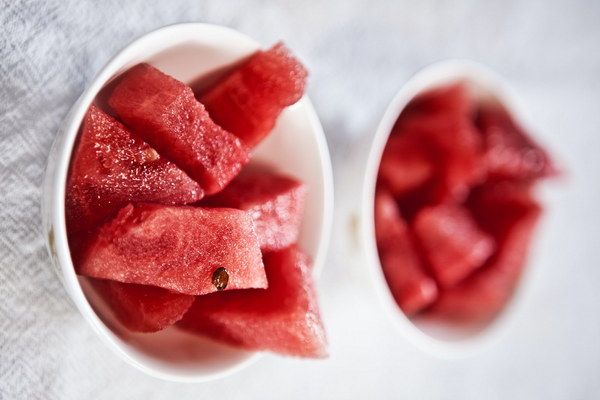Revitalize Your Health A Comprehensive Guide to Tackling Malnutrition with the Right Diet
Introduction:
Malnutrition is a pervasive issue affecting millions of individuals worldwide. It manifests in various forms, including undernutrition, overnutrition, and micronutrient deficiencies. To combat malnutrition and restore overall health, it's essential to adopt a balanced and nutrient-rich diet. This article provides a comprehensive guide to tackling malnutrition by highlighting the key foods and dietary adjustments necessary for a healthy lifestyle.
1. Understanding Malnutrition:
Malnutrition occurs when the body does not receive the necessary nutrients for optimal functioning. It can lead to various health complications, including weakened immune system, stunted growth, cognitive impairments, and increased risk of chronic diseases. To overcome malnutrition, it's crucial to identify its underlying causes and address them accordingly.
2. Key Nutrients for Malnutrition:
To combat malnutrition, it's essential to incorporate a wide range of nutrients into your diet. Here are some vital nutrients to focus on:
a. Protein: Essential for muscle repair, growth, and overall health. Good sources include lean meats, fish, eggs, dairy products, legumes, and nuts.
b. Carbohydrates: Provide energy for daily activities. Opt for whole grains, fruits, vegetables, and legumes to ensure a steady supply of energy.
c. Fats: Healthy fats are vital for nutrient absorption and hormone production. Include sources such as avocados, nuts, seeds, olive oil, and fatty fish.
d. Vitamins and minerals: These are essential for various bodily functions. Focus on fruits, vegetables, whole grains, nuts, and dairy products to ensure a sufficient intake of vitamins and minerals.
3. Dietary Adjustments for Malnutrition:
a. Increase Caloric Intake: If you have a low body weight or are undernourished, you may need to increase your caloric intake. Incorporate nutrient-dense foods that are high in calories, such as nuts, seeds, avocados, and dairy products.
b. Regular Meals: Eat small, frequent meals throughout the day to ensure a steady supply of nutrients and energy. This can help prevent feelings of exhaustion and improve overall digestion.
c. Hydration: Drink plenty of water throughout the day to support proper nutrient absorption and overall health. Aim for at least 8-10 glasses of water daily.

d. Diversity in Diet: Incorporate a wide variety of foods to ensure a balanced intake of nutrients. Aim for a colorful plate with a mix of fruits, vegetables, whole grains, lean proteins, and healthy fats.
4. Foods to Focus On:
a. Leafy Greens: Dark leafy greens such as spinach, kale, and collard greens are rich in vitamins, minerals, and antioxidants. They can be added to salads, smoothies, or cooked as a side dish.
b. Berries: Berries, including strawberries, blueberries, raspberries, and blackberries, are packed with antioxidants and vitamins. They can be enjoyed fresh, frozen, or added to yogurt or oatmeal.
c. Quinoa: A complete protein source, quinoa is also rich in fiber, vitamins, and minerals. It can be used as a substitute for rice or pasta and is versatile in various recipes.
d. Nuts and Seeds: Almonds, walnuts, chia seeds, and flaxseeds are excellent sources of healthy fats, protein, and fiber. They can be added to salads, smoothies, or eaten as a snack.
e. Legumes: Beans, lentils, and chickpeas are packed with protein, fiber, and essential nutrients. They can be used in soups, stews, salads, or as a side dish.
5. Conclusion:
Overcoming malnutrition requires a comprehensive approach that includes dietary adjustments, proper nutrition, and a balanced lifestyle. By incorporating the right foods and nutrients into your diet, you can revitalize your health and improve your overall well-being. Remember to consult with a healthcare professional or a registered dietitian for personalized advice and guidance.









